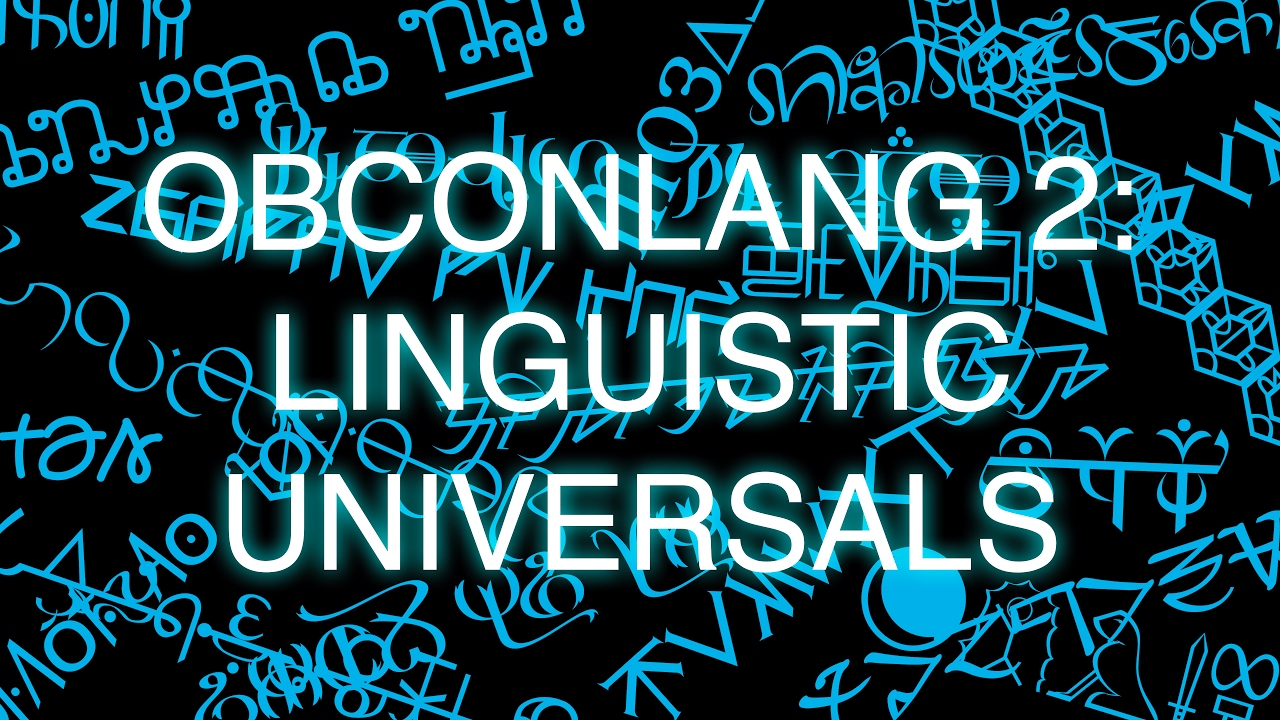David Peterson
In this episode I discuss linguistic universals, and their applicability to conlanging.
LINKS:
(1) 0:00: The Universals Archive: http://typo.uni-konstanz.de/archive/intro/index.php
(2) 11:17: WALS: http://wals.info/ .

David Peterson
In this episode I discuss linguistic universals, and their applicability to conlanging.
LINKS:
(1) 0:00: The Universals Archive: http://typo.uni-konstanz.de/archive/intro/index.php
(2) 11:17: WALS: http://wals.info/ .
Comments are closed.
thanks, great video!
please do a video on praying mantises
Hey, tell me if you've gotten these questions before (and answer them):
1: How do voiceless nasals come about?
2: How come stops that become palatalized turn into affricates? Like Japanese "tsu" or "chi" I've even heard "tuesday" realized as "Chuesday". Isn't there another way of getting affricates?
3: How often do you get questions that are already answered in your book?
in toki pona (a conlang that i speak) about 80% of the words can act as a verb or a noun. the sentence "mi esun e esun" means "i buy (something) at the store"
Thanks to you, I am now going to use -aby to refer to 17 of something.
Just curious, why do your thumbs seem to have three joints?
Languages like Korean and Japanese don't generally use personal pronouns when addressing other people. They will use the other person's name. So it is found in real world languages.
It always bothered me when I was learning Albanian that there are separate words for arm (krah) and hand (dorë), but only one word (këmbë) for both leg and foot. It bothers me less now that I'm more fluent, but I still just wonder how that sort of thing comes about.
In the southern dialects of German we use the word for foot also when we refer to our legs, but we do differentiate between arms and hands.
you should have countaby a few more overlays
I'm kind of surprised that there was never a situation where sound change fused the dual form with one of the other grammatical numbers, leaving say singular, trial, and 2 or more excluding 3.
I'm now wondering whether I should make a morphological form in my ConLang for exactly 17 to be optimised to count the number of syllables in haikus.
I actually do want to construct a language which doesn't use first person pronouns and normally neglects the subject/actor in sentences. The speakers should have an, uhm, diminished sense of self. It's more important for them to describe what happens to something than what or who caused it.
What if dual and plural merged by sound change, giving sing, trial, and plural including 2?
Yay! Shoutout for 7 Wonders!
In a language where you only use names they would probably have pretty simple/distinguishable names
What about a language with a morphological form for negative amounts of something?
The lifespan of a cicada.
Thinking of how a language can be tied up to a mythology, if a certain number is considered sacred or taboo, then it could make sense to a have a separate form just for that number, separating it from all others.
In your mentions of 17s, you left out the 17-year cicada. Every 17 years, within a day or two, they spawn, mate, lay their eggs, and then you don't see them for another seventeen years until the next mass spawning. It's ridiculously fascinating.
7:30 the age of that dancing queen
6:13
2:51 kay(f)bop(t) (kind of)
Chomsky upon seeing Pirahã: «bruh»
In my worldbuilding project there is an island (currently unnamed) full of languages with no noun-verb distinction. These languages tend to distinguish between nouns and verbs by spontaneously developing tones or by evolving themselves into proper languages, or possibly not at all. I know it's unnaturalistic, but that doesn't mean it's impossible.
Most cicadas reproduce every 17 years.
I eat -18 apples.
Ik eate applekuni
-k = ergative
-e = first person singular
-kuni = -18 of something
I consider gibberish a language, therefore not all languages convey meaning
the plural of “preying mantis” is “preying mentis”
"We don't really know enough about languages to know everything about it"
David Peterson, 2017
I've got a question about specific numbers. Sure, it does make sense to only have a number for three if you already have a number for two. But what if number three (or four, or five) is extremely important for the culture? What if the whole world is based on this sacred number and the language has to show it somehow? Couldn't we have then, for example, a number for 1 and 2, another number for exacty three and another number for more than three?